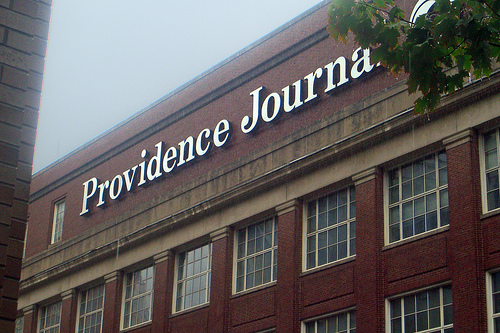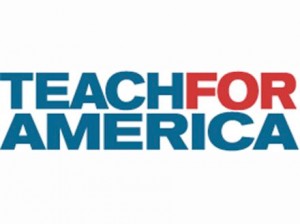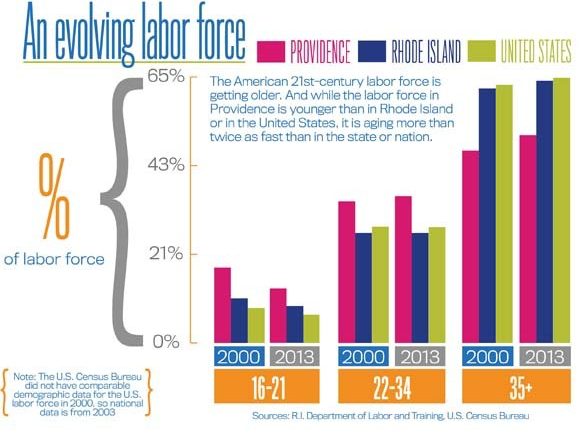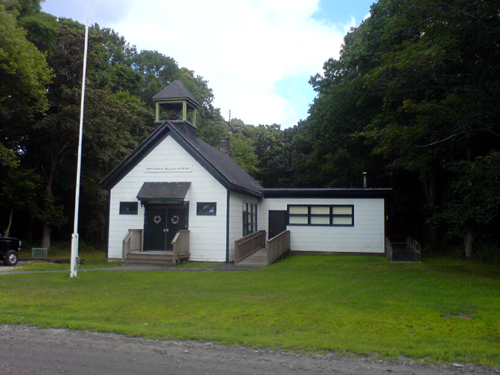 Hopefully many parents, teachers, and concerned RI residents are aware that the RI Council on Elementary and Secondary Education has proposed changes to the high school diploma system. They will host four public hearings in late August and early September, and also are accepting public comment in writing. Here is the link to the draft changes.
Hopefully many parents, teachers, and concerned RI residents are aware that the RI Council on Elementary and Secondary Education has proposed changes to the high school diploma system. They will host four public hearings in late August and early September, and also are accepting public comment in writing. Here is the link to the draft changes.
The meetings will be held Monday, August 22 at the Cumberland Public Library; Monday, August 29 at the Newport Public Library; Tuesday, September 6 at the Warwick Public Library; and Monday, September 12 at URI’s Providence Campus.
In addition to the dates and venues for the public forums, this document says that written comments can be submitted to Sonya Barbosa at Secondary@ride.ri.gov. One week ago, on August 1, I submitted the following email with my questions and concerns. I re-sent them two days later, when I realized that Ms. Barbosa might not have read through to the end of my email and not have realized that I requested a confirmation that my comments had been received and forwarded to the members of the RI Council on Elementary and Secondary Education and the members of the RI Board of Education. It is now August 8, and I still have not received an acknowledgement. Therefore, I am making my concerns public. I hope that this will inspire others to read the proposed changes, consider their impact, and provide a statement in person at a forum and/or in writing. The future of our students is too important to leave to the educrats to decide.
]]>To: Sonya Barbosa, RIDE
Email: Secondary@ride.ri.gov
To the Members of the RI Council on Elementary and Secondary Education, and the Members of the RI Board of Education:Thank you for the opportunity to express my thoughts on the proposed changes to the graduation requirements. As a retired teacher from the RI School for the Deaf, I have read through the proposed changes and considered how they would affect my former students and students in general across the state. I have several questions and concerns.
• As many of you may know, I have been an outspoken critic of the Common Core State Standards and the PARCC assessments, for many reasons. I was surprised to see on lines 70-73 of the proposed regulations that the definition of Common Core Standards had a strike-through of the entire paragraph. What does this mean, since the PARCC tests are based on the CCSS (and so are the PSAT and SAT), and students in grades 3-9 will still be expected to take the PARCC annually?
• Lines 305-307 state that as of 2017 LEAs may choose to include the state assessment or other standardized assessment as a graduation requirement. How does this mesh with the latest announcements from RIDE that 10th and 11th graders will no longer take the PARCC, and may optionally take the PSAT and SAT? This is purportedly for the purpose of guarding against over-testing.
Some districts have already made participation in the PARCC a graduation requirement as of 2017. Many RI parents and parents across the country have researched the PARCC ELA and Math assessments and decided that it is not is the best interest of their children to participate. Will RIDE accept the situation that students who have fulfilled all other requirements for graduation will not receive a diploma for not taking this flawed test? Will an exemplary student be denied a diploma in 2021 for refusing to participate in the PARCC Algebra 1 test in 8th grade, or the PARCC ELA test in 9th grade? We are soon entering the 2016-2017 school year. There is so much confusion around the diploma requirements across the state. RIDE keeps changing the recommendations, people assume that the RIDE recommendations are state-wide regulations, but districts can still decide otherwise. This situation is untenable.
• The major proposed changes to the current Proficiency Based Graduation Requirements seem to involve the Optional Commissioner’s Seal and the Optional Pathway Endorsement. These are alluded to in lines 446-464 as Council Designations. Yet the Commissioner’s Seal and Pathway Endorsements are not described in detail in the proposed changes. According to the “Proposal for a Revised Rhode Island Diploma System: Overview and Frequently Asked Questions,” developed as of May 20, 2016: http://www.ride.ri.gov/Portals/0/Uploads/Documents/Diploma-System/Regs_FAQs_v%202_5%2020.pdf
“6. Why don’t I see a reference to the Commissioner’s Seal or Pathway Endorsements in the proposed Secondary Regulations?
“The Commissioner’s Seal and Pathway Endorsements would be allowed under the proposed section L-6-3.3, which outlines the criteria for Council Designations. [L-6-3.4 says “Council designations” but does not outline them.] In order to stay current with innovative practices in the field, the proposed Secondary Regulations create the structure for the Council on Elementary and Secondary Education to name, define, and allow the Commissioner’s Seal and Pathway Endorsements at a later time than the initial vote on the regulations, and to review and revise these designations as necessary.”
It seems quite problematic to leave the specifications of these endorsements to the Council to determine at a later time. Will there be public input?
• Lines 466-479 discuss the alternate recognition of high school accomplishment, defined as a Certificate, which is not considered a high school diploma. It states that students with an IEP and modified proficiency standards [i.e. students who take the alternate assessment] may, at LEA discretion, be awarded a diploma. From my experience teaching at the RI School for the Deaf, students who took the alternate assessment had to meet very stringent criteria, and those criteria included significant cognitive impairment. Very few students at the school were eligible for the alternate assessment. Yet many of the students who had in actuality been successful throughout their academic careers at the school, but whose reading levels were considerably below typical for their grade level, were not eligible for the alternate assessment. Many students have additional learning disabilities, live in families who do not speak English, live in families who do not fluently communicate with them in sign language, and/or live in poverty. These students are capable of post-secondary level work, but might be denied a diploma depending on how the proficiency levels are set.
According to the Frequently Asked Questions mentioned above, the proposed diploma system is intended to be flexible enough to help students with disabilities and any students academically at risk by allowing schools and districts to set the proficiency levels for their students. Yet the schools are to be held accountable for preparing their students for post-secondary education and the workplace.
Who is to decide if the proficiency levels as determined by individual schools are reasonable and fair to all students with varying special needs, when this decision is left to the districts? Will there be comparability of proficiency levels from school to school within a district and between districts?
• At the RI Board of Education meeting on May 17, 2016 Commissioner Wagner discussed the menu of standardized assessments that might be approved for the Commissioner’s Seal endorsement. He said that these would be nationally recognized assessments and nationally recognized cut scores. Again, as a retired teacher from the RI School for the Deaf, I am deeply concerned about this. In my many years of experience teaching deaf and hard of hearing middle school and high school students, we had numerous students graduate and go on to post-secondary programs. Many went to Gallaudet (four year liberal arts college for the deaf) or to the National Technical Institute for the Deaf, affiliated with the Rochester Institute of Technology.
These programs for the deaf required the ACT as a college entrance test. However, cognizant that mastery of academic English is a challenge for many students deaf from birth or early childhood, these institutions set the cut scores for entrance considerably below that for non-deaf students entering post-secondary programs. This did not mean that the students had inferior aptitude, but considered their challenges, anticipating the appropriate supports they would be provided at the post-secondary level. Many of our students completed college and went on to satisfying careers. A nationally recognized cut score for the general population is not an appropriate hoop for all students to jump through to be recognized as prepared for college level course work.
At the same Board of Education meeting, the Commissioner explained that RIDE can factor into the districts’ accountability system the % of students that earn a Commissioner’s Seal or a Pathway Endorsement. If the RI School for the Deaf were to be evaluated by how many students achieve the Commissioner’s Seal as currently described, the evaluation would not accurately reflect the quality of the teaching and learning at the school.
• When asked by a Board of Education member at the same Board of Education meeting, “What resources will be provided to districts to accomplish all this? [i.e. the proposed diploma system], the Commissioner’s answer was: districts can adjust with advanced notice. The Commissioner is expecting an awful lot from districts if they are to accomplish personalized systems of pathways for every middle school and high school student with no additional resources. I hope that the Council will further consider the impact on districts of such a sweeping overhaul of the diploma system.
Thank you for considering my concerns. I would appreciate an acknowledgement that my concerns have been forwarded to the Members of the Council on Elementary and Secondary Education, and the Members of the Board of Education.
Sincerely,
Sheila Resseger, M.A.
Retired teacher, RI School for the Deaf
This from the second paragraph of the story ‘Bill would not end expansion’ on page A1 this morning (web version):
 And this is from the ProJo Editorial Board on June 18:
And this is from the ProJo Editorial Board on June 18:
 BVP was also used as an example in a June 9 editorial by the Providence Journal. A June 26 letter to the editor from former WPRO radio host Steve Kass, who also worked for Republican Don Carcieri, lauded and parroted the editorial’s focus on BVP.
BVP was also used as an example in a June 9 editorial by the Providence Journal. A June 26 letter to the editor from former WPRO radio host Steve Kass, who also worked for Republican Don Carcieri, lauded and parroted the editorial’s focus on BVP.
 The ProJo editorial board has a long history of using – and misusing – Blackstone Valley Prep to represent all charter schools in Rhode Island. Many Rhode Islanders, even some charter school supporters, think the Journal editorial writers are purposely deceiving their readers in an attempt to improve public perception of charter schools.
The ProJo editorial board has a long history of using – and misusing – Blackstone Valley Prep to represent all charter schools in Rhode Island. Many Rhode Islanders, even some charter school supporters, think the Journal editorial writers are purposely deceiving their readers in an attempt to improve public perception of charter schools.
In the same editorial, the Providence Journal writes, “What sin did the academy commit, in the eyes of the legislature, that necessitated its loss of funds? It is not unionized. And it tried to focus its spending on serving the students rather than providing costly benefits to adults.”
Even the most ardent charter school supporters know there are more valid reasons than this to better regulate charter school expansion. Objectively, charter schools divert critical funding from the vast majority of public school students. The ProJo editorial board never mentions this more salient point. The all-white, conservative-leaning editorial board only seems to care about inner city students when charter schools are involved – and charters serve only 5 percent of overall public school students.
But don’t confuse that with a hyper focus on charter schools. The ProJo editorial board has had nothing to say on a recent scandal at BVP involving teachers sending disparaging emails about students. But when a teachers’ union official was found innocent of cyber-harassing a state legislator, the op-ed board still called for the official to be fired.
If the editorial board is banking on the fact that most readers don’t pay close enough attention to see the nuance behind its obstructive and often misleading editorials, it is committing a gross miscarriage of journalism. Thankfully, the news department seems to be fighting back.
]]> According to City Hall, Providence has a major budget crisis to face, meaning the municipality needs to tighten its belt. But if this is true, why are we paying a finder’s fee to Teach for America, the corporately-backed nonprofit that is pumping the nation’s schools full of under-trained teachers who do serious damage to the learning experience of the student while bashing the teacher unions and privatizing schools?
According to City Hall, Providence has a major budget crisis to face, meaning the municipality needs to tighten its belt. But if this is true, why are we paying a finder’s fee to Teach for America, the corporately-backed nonprofit that is pumping the nation’s schools full of under-trained teachers who do serious damage to the learning experience of the student while bashing the teacher unions and privatizing schools?
The Rhode Island Teach for America offices are located at 1 Western Exchange Center, Suite 101, 67 Cedar Street in Providence. Their impact on Providence schools is shown to be nothing but detrimental in a recent report filed by Jaisal Noor of The Real News Network wherein he speaks to education scholar and TFA alumnus T. Jameson Brewer, the co-editor of Teach For America Counter-Narratives: Alumni Speak Up and Speak Out who has just completed a study of TFA that was the subject of an interview by Glen Ford of Black Agenda Report we previously referred to in our report on City Year Rhode Island. One quote that seems particularly relevant to the allegedly cash-strapped Providence is the following:
[I]n most cases if you have the prospect of filling a single teaching position with either a Teach For America corps member or equally experienced, or rather inexperienced, non-TFA teacher, it’s actually more expensive to fill that position with Teach For America on the front end, because TFA requires non-refundable finder’s fees, right, that range anywhere between $2,000-5,000 per corps member per year. And even if the corps member quits, the district is still obligated to pay the rest of that finder’s fee to Teach For America. [Emphasis added.]
Between Teach for America and City Year alone, we are talking about municipal expenditures that are costing the city millions of dollars that it allegedly does not have. At a time when the social safety net is most precarious why is Jorge Elorza giving away freebies?
The popular media narrative of the 2014 Providence mayoral election was that the East Side threw support behind Elorza and delivered him the vote to prevent a return to power for Vincent “Buddy” Cianci. But the point not raised is that the East Side is an enclave of private sector NGO-industrial complex policy wonks that support corporate school deform efforts, including the Democratic Party finishing school of neoliberalism known as Brown University’s School of Government. Perhaps the election narrative needs to be revisited.
]]> City Year was founded in 1988 by Harvard Law School room mates Michael Brown and Alan Khazei. Their original vision was to create a young adult organization that would function as a kind of domestic Peace Corps and that bore some resemblance to the New Deal Civilian Conservation Corps. In the first few years, the program, based out of Boston, was a halting success, mainly involved in a series of public works and betterment efforts that were well-intentioned but did not make the gigantic impacts in the original dreams of the founders. There were also typical start-up problems every non-profit faces when its volunteers are in that age bracket, such as absenteeism/tardiness and poor behavior. They began with after-school programs, a weekend youth group called Young Heroes, and literacy tutoring, as well as the foundation of AmeriCorps, based on the City Year model. That all changed in 2010 when the organization, now in multiple cities across the nation, adopted a full-time school-based program, focused on student attendance, behavior, and course performance. However, underneath the red jackets, their laid a set of steps that played right into the hands of the neoliberal policy agenda.
City Year was founded in 1988 by Harvard Law School room mates Michael Brown and Alan Khazei. Their original vision was to create a young adult organization that would function as a kind of domestic Peace Corps and that bore some resemblance to the New Deal Civilian Conservation Corps. In the first few years, the program, based out of Boston, was a halting success, mainly involved in a series of public works and betterment efforts that were well-intentioned but did not make the gigantic impacts in the original dreams of the founders. There were also typical start-up problems every non-profit faces when its volunteers are in that age bracket, such as absenteeism/tardiness and poor behavior. They began with after-school programs, a weekend youth group called Young Heroes, and literacy tutoring, as well as the foundation of AmeriCorps, based on the City Year model. That all changed in 2010 when the organization, now in multiple cities across the nation, adopted a full-time school-based program, focused on student attendance, behavior, and course performance. However, underneath the red jackets, their laid a set of steps that played right into the hands of the neoliberal policy agenda.
When I graduated Rhode Island College in 2009, I was facing a lack of job prospects and no medical coverage to pay for a variety of prescription drugs that I take for several chronic illnesses. City Year appealed to me for several reasons. First, as an Eagle Scout, I have an inclination towards voluntary service. Second, City Year provided full health insurance. Third, those who graduate the program are eligible for the Segal AmeriCorps Education Award, which I used to pay off one of my student loans. As a member, I was part of the Young Heroes team. During the week, we would run after school programming at Bridgham Middle School, which is on a side street between Broadway and Westminster Street in Providence adjacent to the entrance to Olneyville. After the New Year, we took up the youth program on Saturdays, hosting hundreds of youth as we ran a variety of activity modules intended to promote better citizenship.
For pay, we were given a stipend of less than $1,000 per month. I lived at home to save on room and board, but my fellow Corps members, who came from across the country, were encouraged to get Food Stamps and budget wisely. The argument for this does have a Francis of Assisi-like quality, encouraging one to live with the means of those one serves, but there remains a simple question, why would then-Mayor David Cicilline spend all this money to host a City Year organization instead of just hiring more teachers? Should a Democratic Party-majority municipality with a major education infrastructure problem be sending funds to a non-profit or invest it in upgrading the schools? Was it not John Maynard Keynes who said that, especially in a recession akin to ours in 2009, the way to get out of the slump is to increase public spending and hiring of good-paying, unionized public workers?
The Democrats have long supported neoliberal agenda in regard to education. Figures like Cory Booker and Arne Duncan, considered superstars in the mainstream, have been major proponents of the charter school movement and war on teacher unions. Since Vincent “Buddy” Cianci left the Mayor’s office, there have only been Democrats elected to power, yet the roll-out of charter schools and so called “education reform” policies like Common Core, standardized testing, and teacher evaluations are unchallenged. It is easy for the media to demonize certain figures, such as former Education Commissioner Deborah Gist, but it is unheard of to see neoliberalism discussed within the pages of the Providence Journal.
One of the elements of City Year I found most problematic was its so-called ‘Culture of Idealism’. It consists of a hodgepodge collection of parables, sayings, and directives that are meant to inspire the Corps. This problematic because it throws together a variety of historic personages from radically different socio-political backgrounds and outlooks in the name of this thing called ‘idealism’. Is it appropriate to quote first the anti-choice Mother Theresa and then Nelson Mandela, who legalized abortion in South Africa following his election? Would Martin Luther King, Jr., who died in the midst of developing a democratic socialist outlook meant to challenge the poverty inherent in racism and capitalism, enjoy being lumped together with the same Red-baiting Robert Kennedy that bugged his hotel rooms and phones?
Who cares? Idealism!
There is a long history of genuine education reform in the art of teaching. For example, it was the Brazilian Paolo Freire’s 1968 Pedagogy of The Oppressed that radically redefined the teacher-student dynamic and challenged basic institutional assumptions about learning, kicking off what has come to be known as the critical pedagogy movement. Freire utilized the Marxist analysis of colonialism and combined it with his own observations about how students are treated as piggy-bank-like vessels to be filled with knowledge. He said instead that the teachers must collaborate with the pupil to create knowledge, derived from the model of education proscribed by John Dewey. However, with City Year, there is no engagement with this kind of logic. Instead, there is re-enforcement of Common Core and other principles that are actually contributing to the drop-out crisis. The organization claims they want to plug the school-to-prison pipeline, but they traffic in material and philosophy which accomplishes the opposite.
This can be attributed to the fact that the people in charge of City Year Providence and the wider organization are not educators. The Board does include a few people with some experience in education, but what business does Andrew Viens of Bain Capital or Andrew Capalbo of Locke and Lord law firm have in education?
The training I received in 2009 has since changed, so things are different today. When I was there, there was a transition in process and there were members at the highest level who were creating new ideas. However, the simple fact remains that collaboration in the neoliberal agenda continues. There is no evidence of interest in Freire’s ideas, just white papers explaining how to implement Common Core better.
Furthermore, City Year also participates in other neoliberal education trends that are much more problematic. For example, they place alumni in the union-bashing Brooke Charter Schools, which are intended to field-train teachers without proper education in college. When I was exiting the Corps, one option for alumni was the likewise union-busting Teach for America organization. A recent report by Glen Ford at Black Agenda Report explains the major deficiencies in the Teach for America program. The report begins at 24:46 in the broadcast and can be heard by clicking here.
The war on public education includes union busting but also the destruction of teacher tenure. This is because, even if you are protected by a union, you can still have your position phased out. Why? This gets to the very core of being a teacher: As highly-educated working people, they have the capacity, skill set, and oftentimes drive to be community leaders, figures that can and often do fight for equality.
Consider this thought experiment:
Let us suggest that perhaps you have a Social Studies teacher in a middle school. As part of a yearlong assignment, the class is asked to do a news analysis assignment wherein they track a recurring set of stories about a politician who is quite close to the charter school industrial complex. Suddenly, on the occasion when the charters get a huge pile of money to open new locations while the public schools are in shambles, the students read the writing on the wall and understand the systemic failure. They begin talking about holding walkouts, protests, sit-ins, all sorts of direct actions. These kids, in the midst of hormonal upsurge, need a teacher to guide them through direct action politics, help them understand what it means to make demands, and how to gauge results as either success or failure. In short, they need a teacher, protected by tenure, who can speak truth to power.
Things were further complicated by ethical challenges I faced when I was in City Year. When we did outdoor service, work that should have rightfully been done by properly-trained and paid Providence city employees, we were given zero instruction about equipment safety.
There are now 27 City Year locations across the country. I did a brief cross-section of these locations with locations cited in a 2013 article by In These Times that named five cities in the midst of a neoliberal takeover. Several of them also have City Year programs in their states and are the homes of prominent education deformers like Arne Duncan, Bill Strickland, Eric Hanushek, Bill and Melinda Gates, and Michelle Rhee..
The question now becomes a simple one, can City Year shed its neoliberal tendencies and become an agent for positive change? That is a difficult question. The idea that individuals untrained in the pedagogical methods can jump in and out of a troubled school district and affect students positively within the course of a school year is problematic at best. Serious re-calibration of their training modules with accredited institutes of higher education, such as Rhode Island College, to create certified teacher’s aides is the most tenable solution that comes to mind. Currently one can gain certification to become a TA after 18 hours of training with an accredited organization and passing the ParaPro test if one does not hold a college degree. In the place of City Year, Providence could be hiring qualified TAs with ease.
The only problem is the TAs are unionized and receive benefits and pension for their work, something Corps Members do not get from their service. And just to be clear, I would not want to make it seem like I am bashing anyone, a systemic critique in the Marxist vein I aim for is instead based around a political economy of structural nuances. The people who join City Year have the best of intentions and should be highly respected for this effort. But, to borrow from the logic of Slavoj Zizek, the ideological matrix is such that they do not know that they are actually contributing to a status quo of education failure.
But this would also require a much higher standard for applicants and tougher screening. It would also behoove the organization to become more integrated with the American Federation of Teachers and other labor organizations. Of course, that would also risk the Corps members trying to unionize for better pay, especially now that free healthcare is the law and not a membership perk. This is a difficult matter, but I imagine some idealism will help them figure it out.
]]>Jacobin magazine is not my favorite publication on the Left, mostly because it seems to have some spots where it is putting its layout editorial policy ahead of everything else, producing gorgeous magazines that sometimes seem to be all over the place ideologically. That said, they did a fantastic job this summer commemorating the 150th anniversary of the Union victory in the Civil War. Earlier this year, they released a short documentary titled THE SCHOOL CLOSURE PLAYBOOK that explains how the neoliberal charter school deformation of public education has been executed against Chicago.
Since then, Mayor Rahm Emanuel has entered one of the most politically treacherous waters since perhaps the 1968 Democratic Party Convention devolved into street fights between Mayor Daley’s militarized Chicago Police and thousands of anti-war protesters who were disgusted with the machinations of the pro-Vietnam War Hubert Humphrey. It seems unlikely that Emanuel will emerge unscathed from the Laquan McDonald police shooting scandal. Yet regardless of what happens to one over-glorified and under-qualified Clinton-era political hitman who somehow tricked voters into electing him, we can be sure that the neoliberal teacher union-busting strategy he has implemented in Chicago is going to continue to be used across America, a strategy that sounds eerily familiar to those who watch the policies in Providence and other school districts in the Ocean State. In this sense, this video is a Christmas gift for local public school teachers. As the Chicago teachers prepare to go on strike again, thanks in no small part to the rise of the Caucus of Rank-and-File Educators in the ranks, we should see Chicago as both a warning and guide for strategy.
]]> Race and racism is the topic of discussion in the press. Yet it remains to be seen if this discussion will include the use of the dreaded c-word (class) or dare use the g-verb of what harms people of color daily (gentrification). Here at RIFuture, we want to spice it up a little and talk about those issues as part of a guide to activists in #BlackLivesMatter and other movements.
Race and racism is the topic of discussion in the press. Yet it remains to be seen if this discussion will include the use of the dreaded c-word (class) or dare use the g-verb of what harms people of color daily (gentrification). Here at RIFuture, we want to spice it up a little and talk about those issues as part of a guide to activists in #BlackLivesMatter and other movements.
We are approaching winter. I hope to suggest some books that activists can study amongst themselves so to better grasp how to radicalize their movements. Included on the list are suggestions by Antoinette Gomes of the Rhode Island College Unity Center, Ray Rickman of Rhode Island Black Heritage and Stages of Freedom, Jim Vincent of the NAACP, and Imam Farid Ansari of the Muslim American Dawah Center of Rhode Island, who has a background as a member of the Nation of Islam. Although these individuals have contributed to this list, the politics of volumes I suggest should not be construed as their own nor should my comments connected to my suggestions be conflated with their views. I would also be remiss if I did not add that, even though I consider myself a white ally, the reality is that any person of color has a better understanding of these issues in their little finger than I might in all my years of research. This is not intended as anything other than polite suggestion.
- Lies My Teacher Told Me: Everything Your American History Textbook Got Wrong by James W. Loewen (Suggested by Antoinette Gomes)
- Citizen: An American Lyric by Claudia Rankine (Suggested by Antoinette Gomes)
- In the Matter of Color: Race and the American Legal Process: The Colonial Period (Race and the American Legal Process, Volume I)/Shades of Freedom: Racial Politics and Presumptions of the American Legal Process (Race and the American Legal Process, Volume II) by A. Leon Higginbotham (Suggested by Farid Ansari)
- The New Jim Crow by Michelle Alexander (Suggested by Jim Vincent)
- Between the World and Me by Ta-Nehisi Coate (Suggested by Ray Rickman)- A meditation on race in America.
- March: Book One by John Lewis (Suggested by Ray Rickman)- Congressman Lewis writes about his childhood and the beginning of his work in the Civil Rights Movement.
- The Autobiography of Malcolm X As Told to Alex Haley– This book remains a vital manual for understanding the inherent value of any member of a minority group. Despite the problems in the text caused by Haley’s intentional distortion of Malcolm X’s politics, it is a critical volume.
- A Lie of Reinvention: Correcting Manning Marable’s Malcolm X edited by Jared Ball and Todd Steven Burroughs- When Marable’s biography of the slain leader was published posthumously, the Left in America was stunned by its lunacy. Obsessed with tabloid sexuality issues and trying to say that Malcolm X prefigured the neoliberal Obama administration, it was roundly condemned by everyone who knew the truth. Several rebuttal volumes were published but I would argue this is perhaps the finest. There is a corresponding collection of media files featuring discussions with various Left African American scholars at Prof. Ball’s website.
- The Wretched of the Earth by Frantz Fanon– Fanon was lying on his deathbed and dictated the material to his wife as it was written. The book analyzes the decolonization and how oppressed peoples can reorganize their societies. The first chapter, titled On Violence, was a stunning riposte to pacifists.
- Black Skin White Masks by Frantz Fanon– Here the author writes a classic psycho-analytic dissection of racism and how it affects the victims.
- The Souls of Black Folk by W.E.B. Du Bois– The book that argued ‘the problem of the Twentieth Century is the problem of the color line’, something all the more relevant today. Du Bois spared no punches when he fired across the bow of Booker T. Washington and dared people of color to dream of something greater than the lives of vocational workers dictated by the Tuskegee Institute.
- John Brown by W.E.B. Du Bois– John Brown, the abolitionist martyr, was not the first to say Black Lives Matter, but when ‘he captured Harper’s Ferry, with his nineteen men so few/And frightened Old Virginnia till she trembled thru and thru’, the entirety of the United States was rocked so hard it caused a Civil War. I have previously written CounterPunch where I argue this is an essential volume for all white activists to read.
- Race and Racism: An Introduction by Carolyn Fluehr-Lobban- A fantastic volume that explains the intricacies and contradictions of race written by a longtime member of the Rhode Island Black Heritage Society who taught classes on this topic at Rhode Island College.
- Orientalism by Edward Said– A classic dissection of the notion of ‘The Orient’ as an imperialist construct.
- The America in the King Years Trilogy by Taylor Branch- Branch’s epic biography of Martin Luther King, Jr. has some flaws, especially considering his too-close-for-comfort relationship to President Bill Clinton, yet this is essential reading, especially the first volume, Parting the Waters.
- Hopeless: Barack Obama and the Politics of Illusion edited by Jeffrey St. Clair and Joshua Frank- This volume is a Left-progressive response to the Obama administration. It includes essays from radical African writers to poor white southerners who have been equally marginalized by the neoliberal policies of this president.
- Pedagogy of the Oppressed by Paolo Freire– This volume that argues for a re-definition of how teachers teach and students learn. Our charter school champions in the state and city governments could learn a thing or two from Freire.
- What Gandhi Says: About Nonviolence, Resistance and Courage by Norman Finkelstein- Finkelstein is originally a Marxist and advocate for the Palestinians. Yet he turned to Gandhi to develop a manual for the people he loves so dearly and ended up giving us all a gift, dedicating the book to members of Occupy Wall Street. He has no delusions about the Mahatma and is very open about this but also has some stunning insights to share.
- Communists in Harlem During the Depression by Mark Naison- A fantastic case study of liberation politics and a cautionary tale. The Communist Party had some truly brilliant moments, such as their campaign for the Scottsboro Boys, and some truly problematic ones.
- A Brief History of Neoliberalism by David Harvey– When you go to another country, you find political parties that have wildly different economic programs. Yet both the American Democratic and Republican Parties rely on identity and social issue politics to win votes. Why? The reason is that both parties subscribe to a brand of economics called neoliberalism, which dictates mass-privatization of public utilities, eradication of the social safety net, and austerity policies. Harvey presents a very readable and vital history of how America got to where we are today economically.
- Here I Stand by Paul Robeson- One-half memoir, one-half manifesto, this testament of the unabashed champion of his people, who faced censure from the McCarthyist mob in the 1950s, is a brilliant short collection of writings.
- Anarchism: From Theory to Practice by Daniel Guérin– A classic pamphlet that explains the basics of libertarian socialism and the history of a communist movement that values liberty in a fashion far more honest than the old Leninist tradition did.
- On Liberty by John Stuart Mill– Whenever one talks about rights and liberty, they consciously or unconsciously are invoking the ideas laid out by Mill.
- A People’s History of the United States by Howard Zinn– The author was open in his later years he made some mistakes and tried to impose a doctrinaire vision of class on the history of America that had some blind spots, including a gap regarding LGBTQQI people. Yet the book is so beautiful in some parts I still find myself misting up, especially when I read this passage:
There is no way of measuring the effect of that southern movement on the sensibilities of a whole generation of young black people, or of tracing the process by which some of them became activists and leaders. In Lee County, Georgia, after the events of 1961-1962, a black teenager named James Crawford joined SNCC and began taking black people to the county courthouse to vote. One day, bringing a woman there, he was approached by the deputy registrar. Another SNCC worker took notes on the conversation:
REGISTRAR: What do you want?
CRAWFORD: I brought this lady down to register.
REGISTRAR: (after giving the woman a card to fill out and sending her outside in the hall) Why did you bring this lady down here?
CRAWFORD: Because she wants to be a first class citizen like y’all.
REGISTRAR: Who are you to bring people down to register?
CRAWFORD: It’s my job.
REGISTRAR: Suppose you get two bullets in your head right now?
CRAWFORD: I got to die anyhow.
REGISTRAR: If I don’t do it, I can get somebody else to do it. (No reply)
REGISTRAR: Are you scared?
CRAWFORD: No.
REGISTRAR: Suppose somebody came in that door and shoot you in the back of the head right now. What would you do?
CRAWFORD: I couldn’t do nothing. If they shoot me in the back of the head there are people coming from all over the world.
REGISTRAR: What people?
CRAWFORD: The people I work for.
This list of books is not perfect and I do not pretend to that. I would be a fool not to note that there are almost no titles that deal with feminist issues and almost no women authors. I would in fact love to see Elisha Aldrich or another woman put together that list. But I hope that, armed with a curriculum that will keep these young people busy until spring, the winter will not kill the activist spirit as it did in the case of Occupy Providence. In the era of the charter school and cops who body-slam young women to the schoolhouse floor as if it were wrestle-mania, critical thinking in minority youths is a public enemy and democracy is the real terrorist threat. My hope and the hope of many is they will embrace their potential and create a big-tent movement that embraces labor unions, progressive religious bodies, women’s groups, LGBTQQI liberators, and a radical press to start a peaceful rebellion and win a bloodless class war.
]]> Something sinister has been happening to public education in America for the last decade or more. Billionaires such as Bill Gates, Eli Broad, and the Walton family have poured their fortunes into remaking our public schools and our public school students into what they envision will be good for multi-national corporations such as Pearson, Microsoft, McKinsey, and IBM. We saw this clearly with the Common Core State Standards and accompanying testing, with the bulk of the funding for the drafting, promoting, and implementing of the Common Core coming from the Bill and Melinda Gates Foundation. Now that there has been an (unexpected?) hue and cry about the over-testing of our students, here comes the antidote: competency/proficiency based education, aka personalization, aka student-centered education, and community partnerships. While this sounds on the surface like a welcome relief to the one-size-fits-all standardization of curricula and high-stakes standardized testing, it comes with its own pitfalls.
Something sinister has been happening to public education in America for the last decade or more. Billionaires such as Bill Gates, Eli Broad, and the Walton family have poured their fortunes into remaking our public schools and our public school students into what they envision will be good for multi-national corporations such as Pearson, Microsoft, McKinsey, and IBM. We saw this clearly with the Common Core State Standards and accompanying testing, with the bulk of the funding for the drafting, promoting, and implementing of the Common Core coming from the Bill and Melinda Gates Foundation. Now that there has been an (unexpected?) hue and cry about the over-testing of our students, here comes the antidote: competency/proficiency based education, aka personalization, aka student-centered education, and community partnerships. While this sounds on the surface like a welcome relief to the one-size-fits-all standardization of curricula and high-stakes standardized testing, it comes with its own pitfalls.
A perusal of the new “RI Strategic Plan for Public Education: 2015-2020” (http://media.ride.ri.gov/BOE/BOE_Meeting_102815/Encl6a.pdf), recently approved by the RI Board of Education, turns up a number of appealing-sounding but troubling buzzwords: personalized instruction, one-to-one computer technology, blended learning, online learning, community partners outside of the school, and particularly, proficiency-based instruction and assessment. In an ideal world, these buzzwords could be a refreshing approach to teaching and learning in a dazzling world of opportunity through technological advances. Very unfortunately, we do not live in an ideal world.
We need only look as far as the state of Maine to see what the ugly reality of competency/proficiency based education looks like in real schools with real students and teachers. Maine has plunged ahead with this agenda, helped along with money from the Nellie Mae Education Foundation (a grantee of the Bill and Melinda Gates Foundation), though there is no research (peer-reviewed or otherwise) that justifies transforming teaching and learning into a digital/online enterprise. Emily Kennedy Talmage is a teacher in Maine who has researched the roots of this agenda and written extensively about it in her blog, and it is unnerving. (http://emilytalmage.com/2015/04/26/save-maine-schools/) My take is that the PR for so-called proficiency based, personalized learning is riddled with code words that translate into outsourcing education to ed-tech vendors and “community partners,” marginalizing classroom teachers, holding students accountable to pre-determined, inappropriate standards (Common Core or Core-like), not allowing them to progress until they have achieved “mastery” of these inappropriate standards, feeding them game-like academic programs that foster zombie cognitive processing rather than real learning, and using extrinsic motivation like rewards and badges, all the while scooping up reams of sensitive data that will go who knows where and be used for who knows what.
While co-opting the language of the Civil Rights Movement with terms such as Equity and Opportunity, those pushing this digital innovation agenda are not sending their children to this brave new educational world. Private school students will still have small classes valuing interaction between teachers and students and students with peers, and rich curricula with the arts, languages, history, and social studies. Other people’s children will be seated at computer terminals, isolated from each other, eyes focused (or not) on screens which will be adjusted second by second to their keystrokes, the data siphoned off into cyber-space. (By the way, the federal Department of Education, the supposedly secure place where all public school students’ personally identifiable information will be channeled via the Statewide Longitudinal Data Systems, recently received a very poor grade for data security from the Office of the Inspector General.)
We need to ask Cui bono? Is this rush to digital learning truly for the benefit of the overwhelming majority of the children in America who attend public schools? Or is it a bonanza for the hedge funders and edtech entrepreneurs who will rake in an exorbitant amount of money directly or indirectly on learning modules of dubious quality?
]]>
Veterans are fierce, persistent against all odds, and amazing leaders. Sure, not all veterans are the same, but a majority of vets are exceptional with whatever they pour their energy into, whether it’s fixing diesel engines or running a Fortune 100 company. A vision for the future of the Division of Veterans Affairs has to be equally bold. When I think “bold,” I think of Bobby Kennedy’s powerful declaration:
“There are those who look at things the way they are, and ask why… I dream of things that never were, and ask why not?”
‘Why not?’ is like a mental palate cleanser, one that will suit us well. I’d invite you, for a moment, to forget everything you think you know about how things work in state government and even what you may believe about veterans – and let’s start with a clean slate.
- This is the 2nd part of a three-part series on veteran’s affairs in RI.
First, let’s think about the people of the RI Division of Veterans Affairs, or the VetAffairs team as I’ll call them. The division has to be a lean team with some of the most dynamic, engaging, and creative Rhode Islanders around. They’d be beyond committed to veterans and their families and have a deep appreciation for everyone in the National Guard, Reserves, and Active Duty force who live in our state. You’d hear their enthusiasm and commitment in the tone of their voice, a warmth and sincerity as they talk about why they joined the VetAffairs team.
The organization would become agile, responsive, and super connected to every town and city in the state. If you’re a veteran, you’d know someone on the team or at least follow them on Twitter (yes, I said Twitter, @RIVeterans does exist). Above all else, the team would be facilitators, connectors, and community builders.
Second, services provided by the division need to match the pressing issues of our time. The Division can no longer be a resource hub; it must become a platform for human capital development. Its core competency will be taking the unique assets each veteran brings back to the state and leveraging this talent in the local economy to foster small businesses, cutting edge research, and new jobs. The veterans will do the heavy lifting, while the VetAffairs team will empower them by accelerating their transition to civilian life (see Part Three in the series, next week!).
The RI Department of Labor & Training and local non-profits in the state must realize a real-time, fluid collaboration with the VetAffairs team to synchronize veteran’s aspirations with mentors, leaders in business, technology, education, and healthcare. Veterans who graduate from Rhode Island universities will stay here, infusing local industry with a powerful combination of millennial entrepreneurship and veteran tenacity.
Embracing Rhode Island’s size, each one of the 72,000+ veterans of our state have to be brought to the table, to become solution designers and collaborators. Our focus is sometimes so strained on those who need assistance, the homeless or unemployed veteran, that we forget there are tens of thousands of veterans who are doing well in our state. For every veteran who is homeless in Rhode Island, there are 266 veterans with a place to call home. And for every veteran who’s unemployed, there are 16 that have a job. We need a charismatic team of expert communicators who can inspire a powerful veteran network of connectors and mentors. But why stop there? The success of a veteran’s transition can be multiplied by the success of the community around them. Remember the other 93.4% of Rhode Islanders who aren’t veterans. That’s a lot of personal and professional capital to jumpstart educational dreams, seed funding for startups, and long-term career planning for every vet who comes home to the Ocean State.

Why should we be so focused on accelerating a veterans’ transition from active duty? Over the next decade, millennials (post 9/11 veterans) will become 75 percent of the total workforce. Our success in harnessing their talent and leadership will directly impact the growth and health of our state’s economy as well as the long-term welfare of our veterans and their families. It’s also the quintessential preventive measure, nipping in the bud the negative consequences of a poor transition– negating many of the problems that typically consume media attention around veterans: strained mental health, unemployment, homelessness, etc. The Division of Veterans Affairs has the most crucial role to play in this preventative strategy, one that sets our veterans up for success and saves us all the costs of inaction or poor execution.
While there ought to be vigorous engagement with new veterans, older veterans are making a different, but hugely important transition too: retirement. Having worked as a psychologist with many veterans crossing this bridge, the significance and challenges of retirement cannot be underestimated. Most of these veterans can expect a complete reconfiguration of their lives, their identities, and changing health needs. Our primary responsibility to these veterans is assuring that those who are eligible and wish to receive their healthcare from the Providence VA Medical Center, get it reasonably quickly. The Providence VA has some of the most dedicated clinicians providing the highest quality care. The VetAffairs team must support a seamless enrollment process so vets can get that fantastic care. It starts by maintaining a strong, active collaboration with those who deliver healthcare to our veterans (Dr. MacKenzie, the Medical Center Director, and her entire staff).
 Lastly, by 2017, the division will have an amazing home to offer nearly 200 older veterans. The new and improved Rhode Island Veterans Home promises to be one of the best assisted-living facilities for veterans in the nation. Yet, we need to go beyond offering veterans a state of the art residence. We need to offer the Rhode Island community a new cultural center.
Lastly, by 2017, the division will have an amazing home to offer nearly 200 older veterans. The new and improved Rhode Island Veterans Home promises to be one of the best assisted-living facilities for veterans in the nation. Yet, we need to go beyond offering veterans a state of the art residence. We need to offer the Rhode Island community a new cultural center.
I grew up on Roosevelt Drive in Bristol, a street that runs beside the Veterans Home. And even so, when I think of ‘veterans’ I don’t picture the Veterans Home. Instead, I think of the vets marching in formation or sitting on the back of slick, classic corvettes during the Bristol 4th of July Parade. After investing $94 million into the home’s revitalization, part of it should be a gathering place where our state’s rich military history is not only told with engraved stones and markers, but by the people who actually lived it. Let’s create a convening space where our World War II, Korea, and Vietnam veterans are invited to share their stories and maintain a vibrant connection to the life of the Bristol community and broader state. Let’s showcase our deep naval roots and sea faring heritage. Let’s not, as a WWII resident at the Veterans Home recently cautioned, lose all of that history.
Some will read this article and think it unrealistic. There’s plenty of cynicism to go around these days, especially about what government can do – and the Division of Veterans Affairs is part of state government. But I’ve never bought into the cynicism. If there is any part of government that has the potential to deserve your trust and confidence, it is the VetAffairs team – comprised of veterans empowering veterans, a rock solid recipe for efficiency, accountability, and tremendous social impact. Rhode Island is positioned to lead the nation in fast tracking its veterans’ success. Let’s get it done.
This is part two of a three part series.
Next week we will explore some little known challenges that the state will face implementing this plan, and how to overcome them.
]]>
Governor Gina Raimondo announced today she is organizing a working group to review the state’s education funding formula.
“After five years, it is time to for a fresh look to review our education funding structure,” she said in a press release sent out today. “A significant part of jumpstarting our economy and creating opportunity for everyone is making sure our kids have access to the best education. Rhode Island has a strong formula and it is model for other states. However all key public policies benefit from regular review.”
State Education Commissioner Ken Wagner concurred, saying, “Now is the right time for another public conversation around the ways we fund children’s futures and about putting our dollars where our values are for the sake of our kids. The bottom line is: Everything we do has to be about supporting teaching and learning. If we’re doing something good, continue. If we’re getting in the way of teaching and learning, we have to be thoughtful and make tweaks. Investing in our classrooms and schools is an investment in the future of our economy and our state.”
Rhode Island didn’t have a formula for allocating state aid to school districts until just five years ago, when a fairly progressive plan that factors in “student enrollment, student poverty levels, and community wealth,” according to the press release. The current funding formula has been criticized as being overly generous to charter schools and not generous enough to poor urban schools.
According to the press release, Raimondo asked the working group to explore these themes:
- Fairness across school types: Our funding formula must be fair and supported by data.
- Flexibility and sufficiency: Our funding formula must enable prudent and sustainable flexibility at the district, school, and student levels.
- Responsiveness to unique needs: Our families, communities, and schools have unique needs, and the funding formula needs to account for and accommodate these unique needs.
- Fiscal responsibility: Our funding formula needs to direct resources to the areas in which they are needed most and the funding formula must encourage savings and efficiency whenever possible
- Improved Outcomes: Our funding formula needs to invest these resources wisely to ensure improved outcomes.
She appointed these members to the working group:
- Elizabeth Burke Bryant (Co-Chair), executive director, Rhode Island KIDS COUNT
- Donald R. Sweitzer (Co-Chair), Chairman, IGT Corporation and Senior Public Affairs Advisor
- Rep. Gregg Amore, House Education Committee, East Providence
- Donato Bianco, LIUNA
- Dr. Nancy Carriuolo, President, Rhode Island College
- J. Michael D’Antuono, School Business Official, Providence
- Sen. Daniel Da Ponte, Senate Finance Committee, East Providence
- Karen Davis, Senior Vice-President, Hasbro
- Kas R. DeCarvalho, Esq., Attorney, Pannone Lopes, and Board Member, The Met School
- Patti DiCenso, Superintendent, Pawtucket
- Sean Doyle, Technical Education Teacher, West Warwick High School
- Dr. Gara B. Field, Principal, Pleasant View Elementary School, Providence
- Georgia Fortunato, Superintendent, Lincoln
- Victoria A. Gailliard-Garrick, Principal, William M. Davies, Jr. Career and Technical High School
- Jo Eva Gaines, Chair, Newport School Committee, and member, Council on Elementary and Secondary Education
- Sen. Hanna Gallo, Senate Education Committee, Cranston
- Stephanie Gonzalez, Blackstone Valley Prep Mayoral Academy and member, Central Falls City Council
- Joseph J. MarcAurele, Chairman, Washington Trust Bank
- Amy Mullen, Special Education Teacher, Tiverton
- Dr. Julie Nora, Head of School, International Charter School
- Stephanie Ogidan Preston, Vice-President, Citizens Bank
- Adam M. Ramos, Esq., Attorney, Hinckley Allen, and member of the Bristol Warren Education Foundation
- Dr. Isadore S. Ramos, former Mayor of East Providence
- Rep. Deborah L. Ruggiero, House Finance Committee, Jamestown
- Toby Shepherd, Grants Program Officer, the Rhode Island Foundation
- Alan J. Tenreiro, Principal, Cumberland High School and National Principal of the Year
- Lisa Tomasso, the Providence Center and member of RIDE Strategic Planning Group
- James Vincent, President, NAACP-Providence
- Dr. Kenneth K. Wong (Advisor), Chair, Department of Education, Brown University

Mayor Jorge Elorza announced a new program that pairs inner city students with police officers as after school sports coaches. It’s called PASS, or the Police After School Sports program.
“This is a great day for the city,” Elorza said on Friday at Gilbert Stuart Middle School. “This is something … many folks have been talking about and working on for a very long time.
Elorza added, “Nowadays with the conflict we’ve seen in other cities, truly the cause of it is that the connection between the police and the community doesn’t exist. But we’re working proactively here in Providence to make sure we have those strong relationships, between our police officers, between the police department, and the community.”
The PASS program is an initiative of PASA, the Providence After School Alliance, which was launched in 2004 by then mayor, now Congressman David N. Cicilline to provide quality after school programs.
PASS has 10 Student Resource Officers, or SROs, who have signed on to coach basketball and/or flag football for students from 5 different middle schools – Nathan Bishop, DelSesto, Esek Hopkins, Roger Williams and Gilbert Stuart.
Providence Police Chief Hugh Clements said officers are excited to work directly with students, stressing the importance of having police officers building relationships with students and in the community.

“And in this crazy world that’s a good thing, that’s really a good thing because we often times hear about bad interactions between the police and members of the community,” said Clements.
“And that may happen somewhere along the line, but at least if they have a perspective,” Clements continued. “They can say ‘Yeah, but I know Officer Wheeler, or Officer Carvallo, or Torres, and you know what he’s a good guy. I worked with him. I played ball with him before.”
A former SRO himself, Clements said interacting with the students on a daily basis provides a balanced and positive feeling not only for the kids but for the officers as well.
“When you walk in a school, in a day room, in a basketball court, on a field, and you see a young boy or girl you know and there’s a connection,” said Clements. “There’s no question, we as adults, we as police officers, walk away with a positive feeling, that day, that night and going forward.”
The students pictured are members of After Zone, a program dealing directly with middle school students and providing them a range of opportunities. After Zone is completely free of charge for the students as well as provides transportation home, supper, and mentorship outside of school. After Zone is an umbrella program allowing students to experience a wide range of programs and activities such as: Downcity Design, Explore the Bay, and various dance, and hip-hop courses as well.
The PASA and After Zone programs are funded through the 21st Century Community Learning Centers Program, providing money to schools within impoverished areas and low-performing schools. Aiming to help the students, and the schools as a whole, meet core state & federal academic standards. Every year PASA works directly with over 2,000 middle school students in Rhode Island.
IGT donated $40,000 for the development of the project and purchasing of equipment for the program. As well as the Providence Fire Department buying basketballs for PASS, the program aims to motivate and build community ties between students and the police department in Providence.
donated $40,000 for the development of the project and purchasing of equipment for the program. As well as the Providence Fire Department buying basketballs for PASS, the program aims to motivate and build community ties between students and the police department in Providence.
Formerly GTECH, IGT is headquartered in Providence and has been an active member of the Providence community, often times donating computers and other technology for libraries and schools alike.
“We knew from the beginning when we came to Providence. It’s the neighborhoods is what makes the city great, and the kids in those neighborhoods…This is where we belong,” said Robert K. Vincent, IGT senior vice president of human resources and public affairs.
Vincent joked that IGT “had the easy part,” before ceremonially handing Mayor Elorza a large check, and explaining that Hillary Salmons, director of PASA, and the others involved had done the hard work to make the program a reality.

